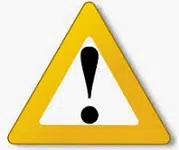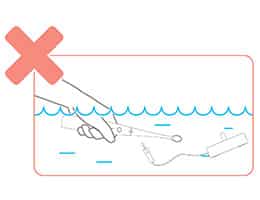 The Latin word praecautio came into Spanish as a precaution . This is the name given to the care taken to avoid a problem or harm .
The Latin word praecautio came into Spanish as a precaution . This is the name given to the care taken to avoid a problem or harm .
Caution arises when warning of a risk . When detecting a possible problem linked to an action or behavior, the person acts with caution to minimize the possibility of damage occurring .
A motorist, for example, should always drive with caution . This means that you have the obligation to pay attention to your surroundings, be cautious and respect traffic rules: otherwise, you may collide or run over a pedestrian. Caution should be even greater in adverse conditions (such as fog, which makes vision difficult, or ice on the road, which causes the vehicle to slide and not be able to brake normally).
Multiple objects, on the other hand, should be handled with caution. A police officer is authorized to carry a firearm , but must do so safely so that it is not accidentally discharged. A knife , meanwhile, is a household utensil whose use requires caution so that it does not cause injury .
Suppose that, in a home, there is a bottle with rat poison . This product is used by the family on certain occasions to combat rodents, which can transmit diseases. Due to its toxicity , this substance should be used with caution. Adults cannot leave the poison within the reach of children or store it with the food and drink consumed by the family group, for example. Without this precaution, a fatality may occur.
 To avoid these and other misfortunes, manufacturers of certain products have a legal obligation to include in their instruction manuals a section dedicated precisely to "precautions for use." Although the variety in this context is very wide, especially since it covers electronic devices of all types, household products and medicines, there are some common points that help the consumer understand the importance of such recommendations.
To avoid these and other misfortunes, manufacturers of certain products have a legal obligation to include in their instruction manuals a section dedicated precisely to "precautions for use." Although the variety in this context is very wide, especially since it covers electronic devices of all types, household products and medicines, there are some common points that help the consumer understand the importance of such recommendations.
Without a doubt, the presence of drawings and graphic symbols can be very useful in conveying the risks of certain practices. This is particularly so because some people do not stop to read the precautions before using a product for the first time, but instead quickly flip through the pages until they reach the power-on instructions, for example; If you come across a drawing of a skull along the way, you are likely to stop.
One of the most common risks that the vast majority of commercial products carry is choking with plastic bags . It is not uncommon for devices to be distributed wrapped in bags, arranged in expanded polystyrene structures and inside a cardboard box. When we get home after the purchase or when we receive it from the courier service, we generally open the packaging and get ready to use the product for the first time; If we leave the bags loose, within the reach of a small child or a pet, they can suffocate from playing with them without being aware of the extent of their actions.
That's why it's so important to include a detailed list of precautions along with instructions for use for any item that may pose a risk, no matter how small. Of course, certain companies are exaggerated when preparing this list, because they include phrases such as "do not wash (the mobile phone) with water" or "do not ingest (the batteries)", among other recommendations that are difficult to take seriously. However, if they did not include them, it would be enough for a single user to do one of those things for them to be able to sue them.
